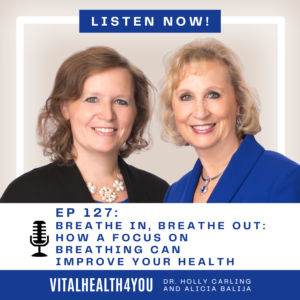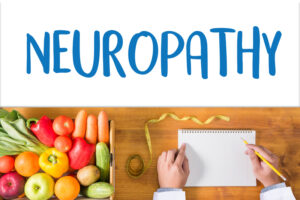Aspartame (NutraSweet™, Equal™, Spoonfuls™)
- Memory Loss, Anxiety
- Migraines and Other Headaches
- Blurred Vision and Blindness
- Dizziness and Seizures
- Tinnitis and Hearing Loss
- Muscle Spasms and Numbness
- Heart Palpitations & Breathing Issues
- Insomnia, Fatigue
- Nausea, Loss of Taste
- Pituitary Tumors, Severe Rashes
Memory loss is the single greatest complaint. Close behind is headaches and migraines.
In an epidemiological study which appeared in the Journal of Applied Nutrition (in 1988) they found:
- 39% Dizziness or unsteadiness or both
- 29% Confusion, memory loss or both
- 25% Decreased vision
- 25% Severe depression
- 23% Extreme irritability
- 19% Severe anxiety attacks
- 17% Severe drowsiness and sleepiness
- 16% Palpitations or tachycardia or both
- 16% Marked personality changes
- 15% Convulsions
- 15% Paresthesias
- Also stimulates or worsens existing MS, Parkinson’s, Alzheimer’s, ALS, AIDS, dementia, brain lesions & tumors, epilepsy, mental retardation, lymphoma, birth defects, fibromyalgia, hormonal problems, hearing loss, diabetes and hypoglycemia.
- In 1995 a hotline was set up for pilots suffering from acute reactions to aspartame ingestion. Near 1,000 pilots have reported symptoms including some who suffered Grand Mal Seizures in the cockpit!
- Aspartic Acid (40% of Aspartame) kills neural cells – it is an exitotoxin that excites or over-stimulates the cells to death. It takes 75% of neural cells in a particular area of the brain to be killed before any clinical symptoms are noticed!!! Great ant poison!
- Methanol (aka wood alcohol, a deadly poison) (10% of Aspartame) breaks down into formaldehyde in the body, a deadly neurotoxin. The recommended limit of consumption is 7.8mg/day. A one liter beverage contains 56mg of methanol. Heavy consumers consume as much as 250 mg/day or 32 times the EPA limit.
- Also contains Phenylalanine (50% of Aspartame) causes phenylketonuria (PKU). The high levels of Phenylalanine depress serotonin levels in the brain causing severe depression, severe mood swings, violent rages and schizophrenia.
Sucralose (Splenda™)
Sucralose is produced by chlorinating sugar (sucrose). This involves chemically changing the structure of the sugar molecules by substituting three chlorine atoms for three hydroxyl groups. Some chlorinated molecules serve as the basis for pesticides such as D.D.T., and accumulate in the body fat.
- Shrunken thymus glands (up to 40% shrinkage)
- Enlarged liver and kidneys
- Atrophy of lymph follicles in the spleen & thymus
- Increased cecal weight
- Reduced growth rate
- Decreased red blood cell count
- Hyperplasia of the pelvis
- Extension of the pregnancy period, aborted pregnancy, decreased fetal body weights and placental weights.
- A compound chemically related to sucrose, 6-chloro-deoxyglucose, is known to have anti-fertility and neurotoxic effects.
- Diarrhea
- Contributes to lessened control of diabetes. One small study of diabetic patients using the sweetener showed a statistically significant increase in glycosylated hemoglogin (Hba1C), which is a marker of long-term blood glucose levels and is used to assess glycemic control in diabetic patients. According to the FDA, “increases in glycosolation in hemoglobin imply lessening of control of diabetes.
- Minimal studies done – only 19 POOR studies. The sucralose studies that are done are not generally double blind and do not comply with the strict research guidelines. Also, few have been done. Compared to: Saccharin: 2374 studies; Aspartame: 598 studies; Cyclamates: 459 studies; Acesulfame-K: 28 studies, Sucralose: only 19 studies.
- Is there any long term human research? None. According to the Medical Letter on Drugs & Therapeutics, “its long-term safety is unknown.”
- Heavy metal contaminants: The FDA acknowledges that sucralose “is produced at an approximate purity of 98%.” While that may sound pretty pure, just what is in that other 2%? It turns out that the final sucralose product contains small amounts of potentially dangerous substances such as heavy metals. These include: arsenic, triphenilphosphine oxide, methanol, chlorinated disaccharides, and chlorinated monosaccharides.
- Contributes to weight gain. Some say Sucralose helps with weight loss. On the contrary. According to Consumers’ Research Magazine “There is no clear-cut evidence that sugar substitutes are useful in weight reduction. On the contrary, there is some evidence that these substances may stimulate appetite.”
- Not all eliminated. 40% is absorbed (doesn’t appear in urine or feces) and no one knows quite yet where it’s being stored. Still a mystery.
- Contributes to serious chronic immunological or neurological disorders: The Sucralose Toxicity Information Center concludes that: “While it is unlikely that sucralose is as toxic as the poisoning people are experiencing from Monsanto’s aspartame, it is clear from the hazards seen in pre-approval research and from its chemical structure that years or decades of use may contribute to serious chronic immunological or neurological disorders”.
©2004 Holly A. Carling, O.M.D., L.Ac., Ph.D.







